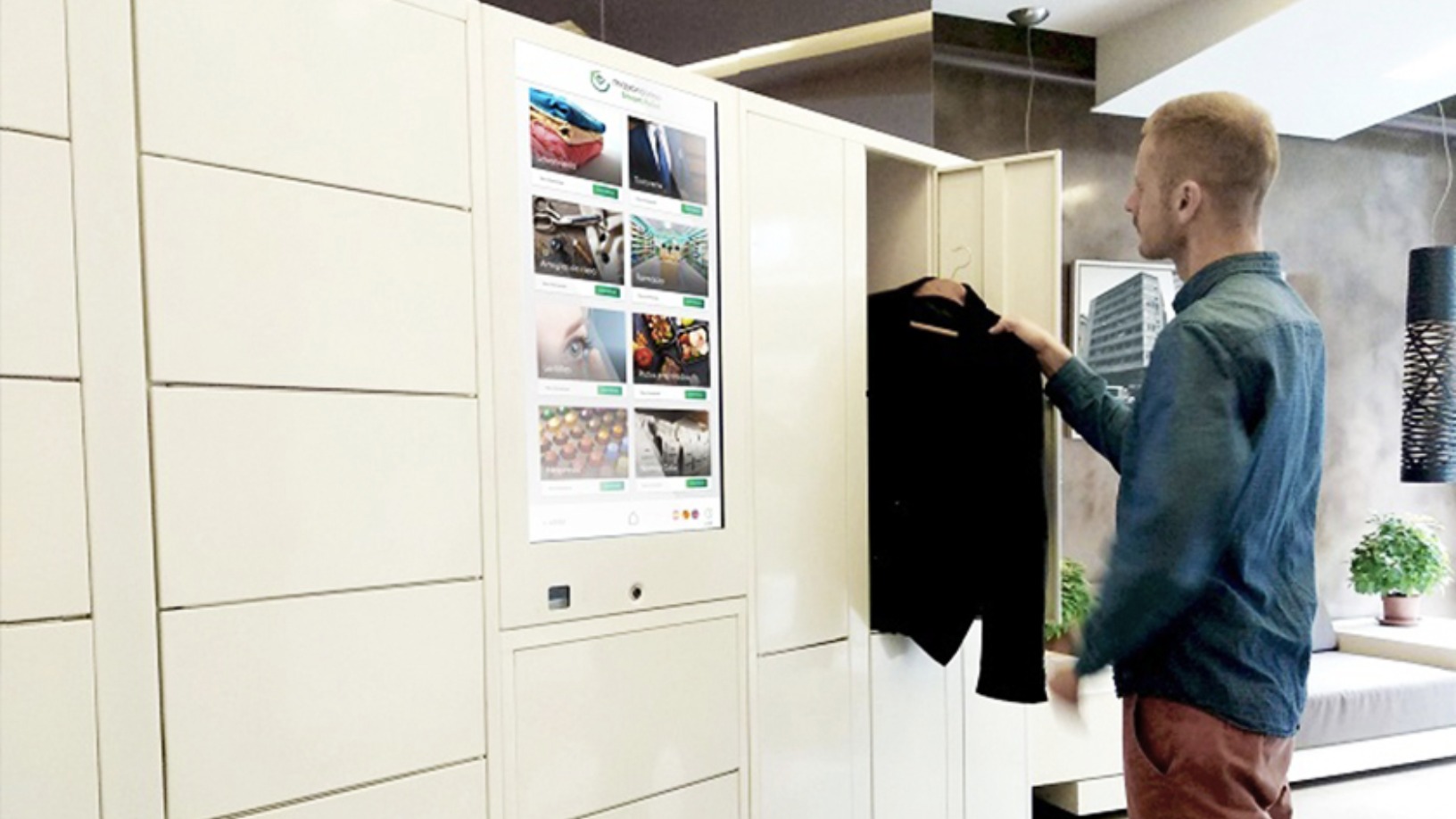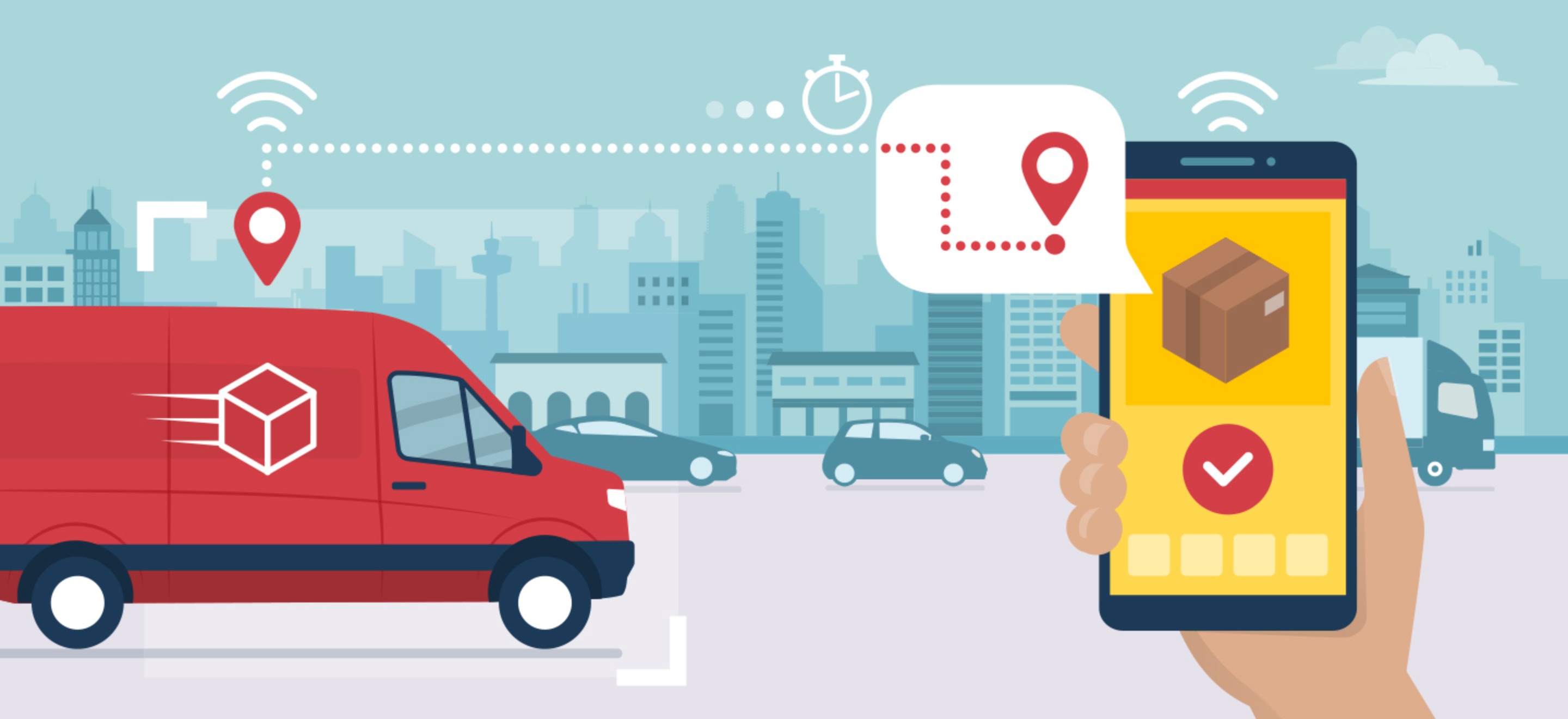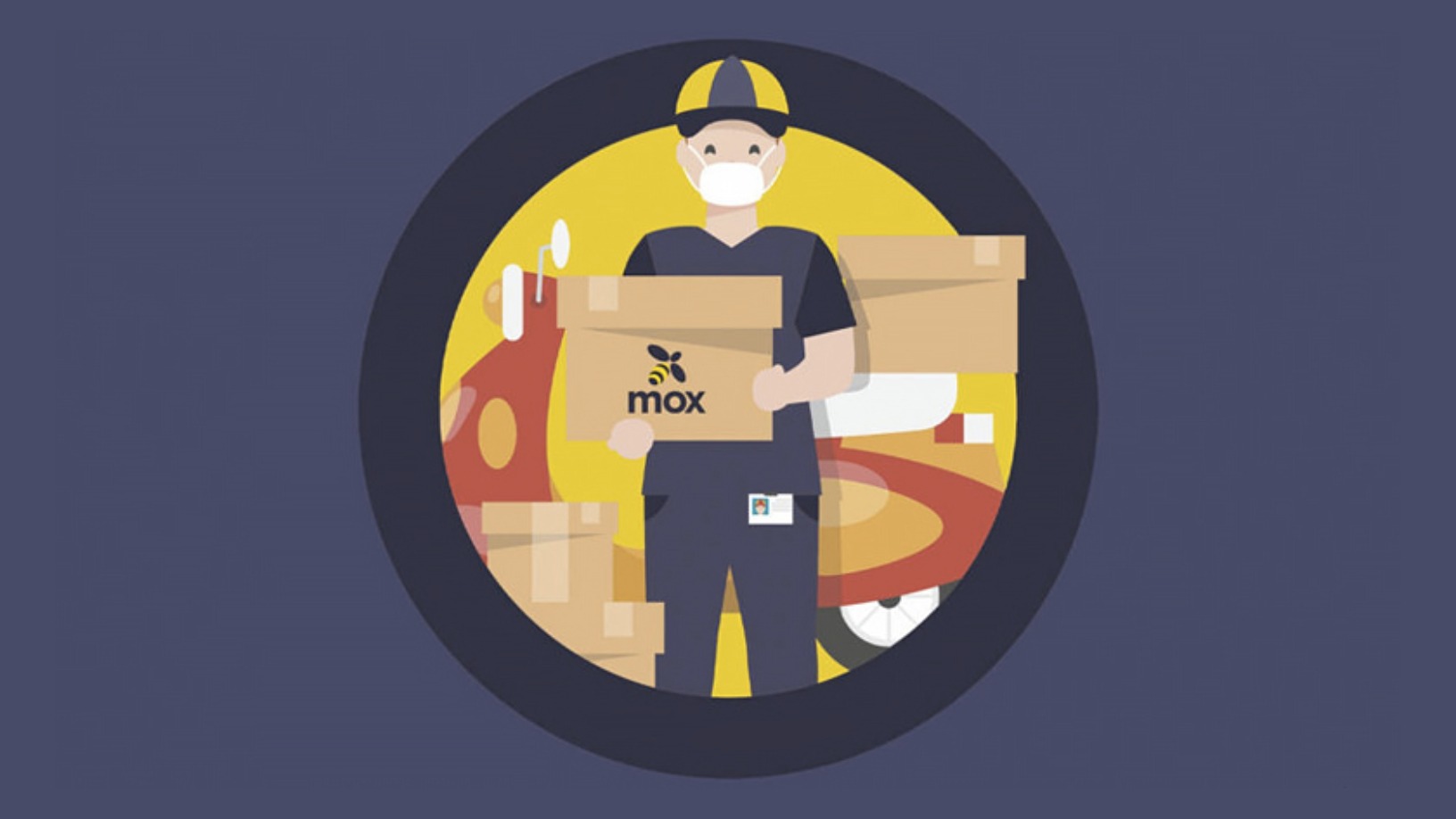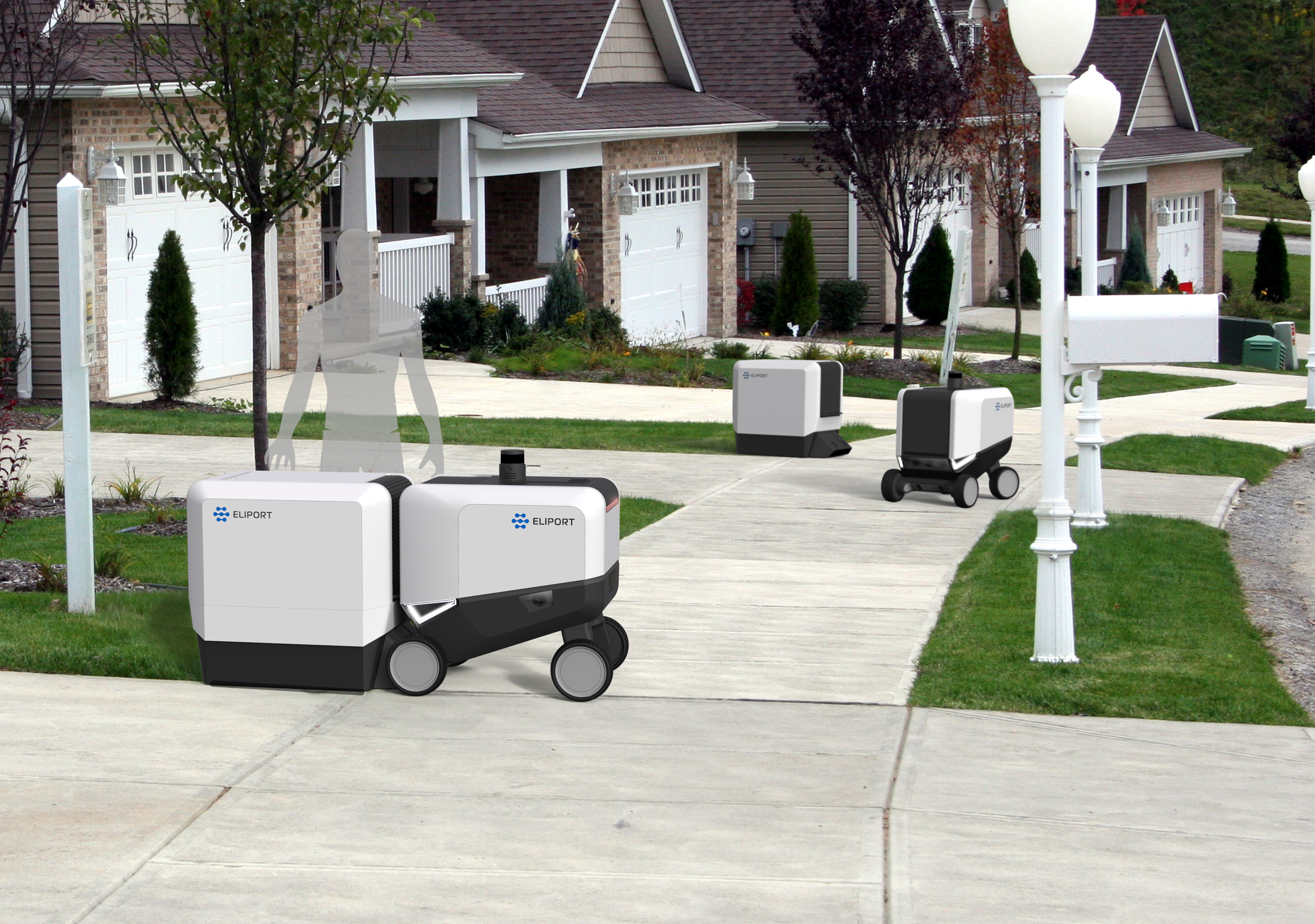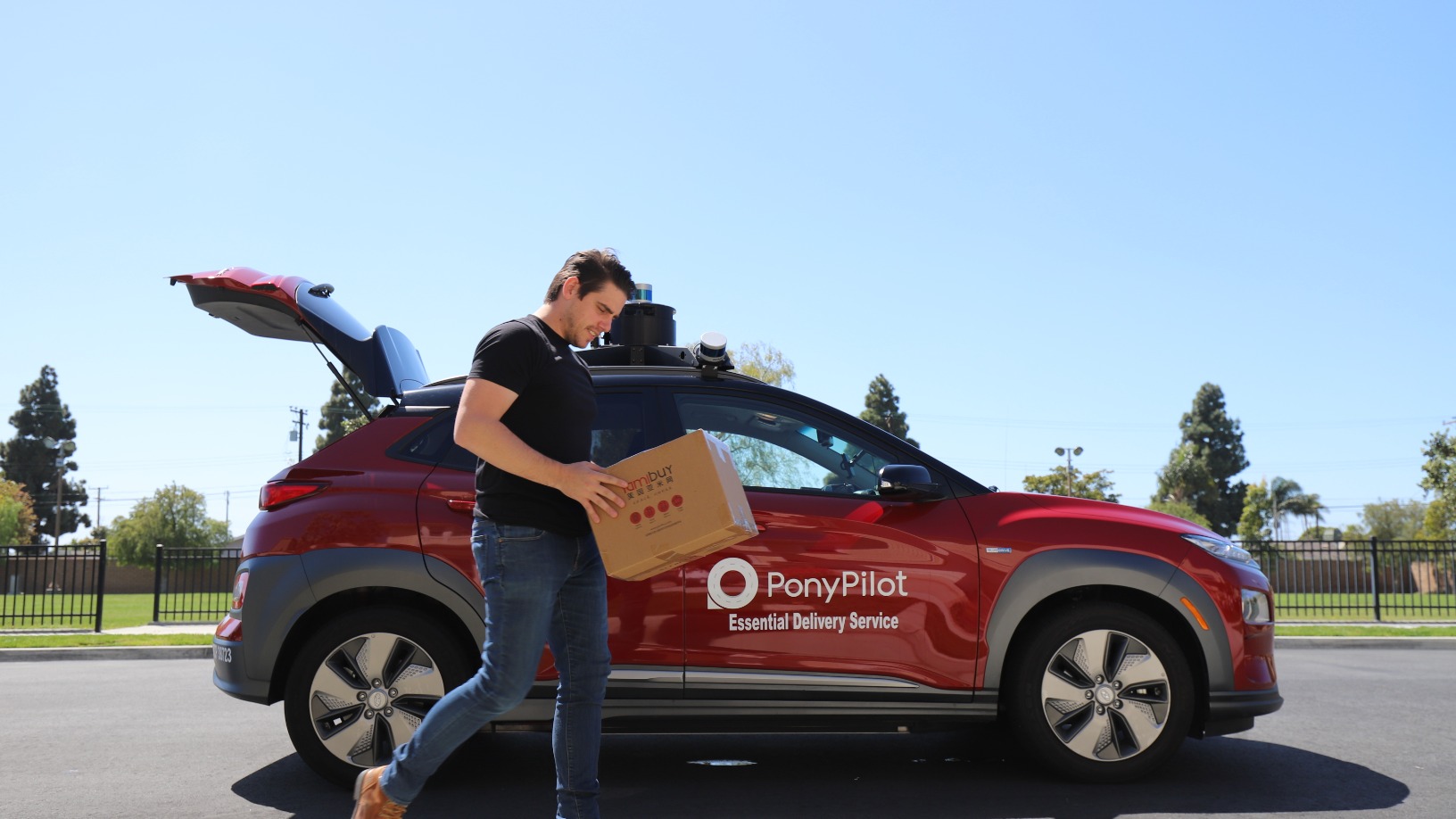When demand for contactless delivery rocketed with Covid-19, last-mile logistics startup Mayordomo quickly responded by installing its Smart Point mailboxes in major hospitals in Barcelona, where the firm originates. Forty more such facilities were also donated to hospitals in other cities across Spain.
Mayordomo, which is Spanish for “concierge” or “butler,” ensures that parcels are disinfected before delivery to its Smart Point lockers. The lockers are remotely controlled to enable customers to collect their items without touching the locker doors. Used with its app, the locker can also serve as a digital personal shopper and aggregate same-day orders, from various users buying from multiple vendors, to optimize last-mile delivery routes to the nearest Smart Point locker facility.
The centralized delivery management system currently connects users to over 200 vendors offering thousands of goods and services, including local pharmacies, dry cleaners and cobblers for emergency requests, according to a pitch session by Mayordomo CEO Tomás Selva last month at the MIPIM Startup Competition, ahead of the global finals to be held in Cannes in 2021. Bigger vendors selling via Mayordomo include Amazon and AliExpress, supermarkets like Aldi and delivery firms like Glovo, DHL and the Spanish Post Office.
The company currently works with over 400 clients including the Catalonian government, Bayer Spain and Barcelona's La Fira exhibition center. More than 50 residential managers and realtors like CBRE in Spain also use Mayordomo Smart Point in their buildings.
Banking on the mass adoption of sustainable smart city solutions in the future, Mayordomo reckons that total revenues could reach €75m by 2024. Another smart locker player, Citibox installed 22,300 lockers in metropolitan Madrid and Barcelona during the three-month lockdown in Spain and plans to install 35,600 more the rest of this year. Online retail sales in the country more than doubled during the lockdown from the year-ago period, versus 24% growth in 2019.
Even without Covid-19 boosting demand for home deliveries, e-commerce logistics giant Pitney Bowes estimates that global e-commerce would produce over 100bn parcels for delivery by 2020. Such exponential growth of on-demand delivery will also substantially increase traffic congestion and CO2 emissions from frequent single-journey couriers.
MIPIM proptech winner
Mayordomo aims to minimize the number of courier trips made to the same destinations or local neighborhoods, reducing traffic congestion and pollution in cities and residential suburbs. Founded in 2016 by Edward Hamilton, a British-born serial entrepreneur. The ex-banker and UC Berkeley alumnus established his first locker enterprise Lavalocker in 2013 to provide on-demand laundry and dry-cleaning services. Since then, the founding team has upgraded the service with over 100 smart locker facilities and managed more than 100,000 orders in Barcelona. In 2019, Hamilton founded his latest venture Droppo, an ambitious zero-emission public delivery network with a centralized smart routing system for micro-neighborhood transportation hubs.
Mayordomo, on the other hand, is aimed at building managers and real estate developers. In July 2019, the system’s potential to become an integral part of smart buildings within the smart city ecosystem was recognized when it beat 210 startups to win the award for “E Proptech Europe” at MIPIM, the world's leading real estate exhibitor. Next year, Mayordomo will participate in the postponed global finals to be held in Cannes.
Mayordomo is bootstrapped with Hamilton as company director. Its 45 employees based in Barcelona and Madrid are led by Selva, who was appointed as CEO in 2017. The design and mechanical engineer has experience in robotics and IoT. Formerly with the UN’s industrial development organization, he has also worked with architect Norman Foster in the design of the Apple Stores. Selva is tasked with the expansion of Smart Point services to include deliveries from any online store or other delivery service provider, seamlessly without any technological or economic barriers.
Smart Point services and deliveries are completely free for customers. But Smart Point vendors must give a 20% discount to Mayordomo since they get free access to Smart Point users without incurring additional marketing expenses. Mayordomo earns income by taking up to half of the 20% discounts given. To boost sales, the rest of the vendor’s discount is then passed on to Smart Point customers. The property management companies also have to pay for the rental of the Smart Point facilities installed in their buildings. Mayordomo shares some of the rental income with its partner vendors to encourage them to increase their range of products and special deals for Smart Point users.
So far, about 70% of residents or office workers in various buildings have started using Smart Point within three months of installation. The company now has over 15,000 users with customer satisfaction level at 96%. Smart Point lockers are now available in Barcelona, Madrid, Santander, La Coruña and Palma de Mallorca. The company set up its first overseas operation in the Portuguese capital of Lisbon, with plans to expand to Copenhagen, Milan, Zurich and Vienna. The bigger US market is next as a longer-term goal.
Eco-friendly personal shopping and deliveries
Early pioneers of smart lockers and digital keys like Goji were the first to come up with the idea of bundling multiple orders together to optimize delivery routes to specific destinations. Mayordomo takes this concept one step further. Goods ordered on the same day, by different customers from the same or even multiple vendors, can be arranged for delivery to selected Smart Point sites during the same time slots. The items are deposited into different compartments within the Smart Point locker units for collection by the customers. The lockers in each neighborhood or building can vary in size to cater to demand for different types of items handled like garments or food.
Besides using the Smart Point app, users can also buy items via the Smart Point display panel that functions like a digital vending machine. They can also book pickups for dry cleaning, shoe repairs and even a car wash. The AI-powered Smart Point system can shortlist the best deals available from various vendors for a selected product or service in terms of price and delivery options. Customers can select and pay at any Smart Point terminal located in participating residential, commercial or co-working premises. After placing an order, the user will receive a text message with a secure payment weblink from a partner financial institution or credit card company.
Mayordomo can also tap into the systems of large companies like the Spanish Post Office and Amazon to optimize the last-mile delivery routes to the same Smart Point locker facility. One-off OS codes are issued for each delivery to allow external couriers to enter a building to use the Smart Point lockers.
In Spain, failed deliveries account for about 30% of total last-mile deliveries. The extra costs of repeat delivery trips can be avoided by depositing the items in Amazon-style lockers, without anyone waiting at home to receive the parcels. Mayordomo estimates that one Smart Point locker can reduce 5.4 tons of CO2 emissions per year, more than half the average annual emissions from one car used in the US.
“Thousands of miles of trips in vans to houses and apartment blocks are avoided,” said Selva. “The idea isn't new, many companies have this type of product. But what we’ve proposed is to offer services to different companies and clients in one single spot or Smart Point. In the same way that economies-of-scale reduce production costs, the unification of delivery points can reduce emissions.”
Mayordomo also includes local vendors on its digital vending catalog. It uses carbon-free solutions as much as possible. “We bring hundreds of local providers to our delivery points to reduce journeys and emissions. This also improves the competitiveness of the smaller vendors,” Selva said.
